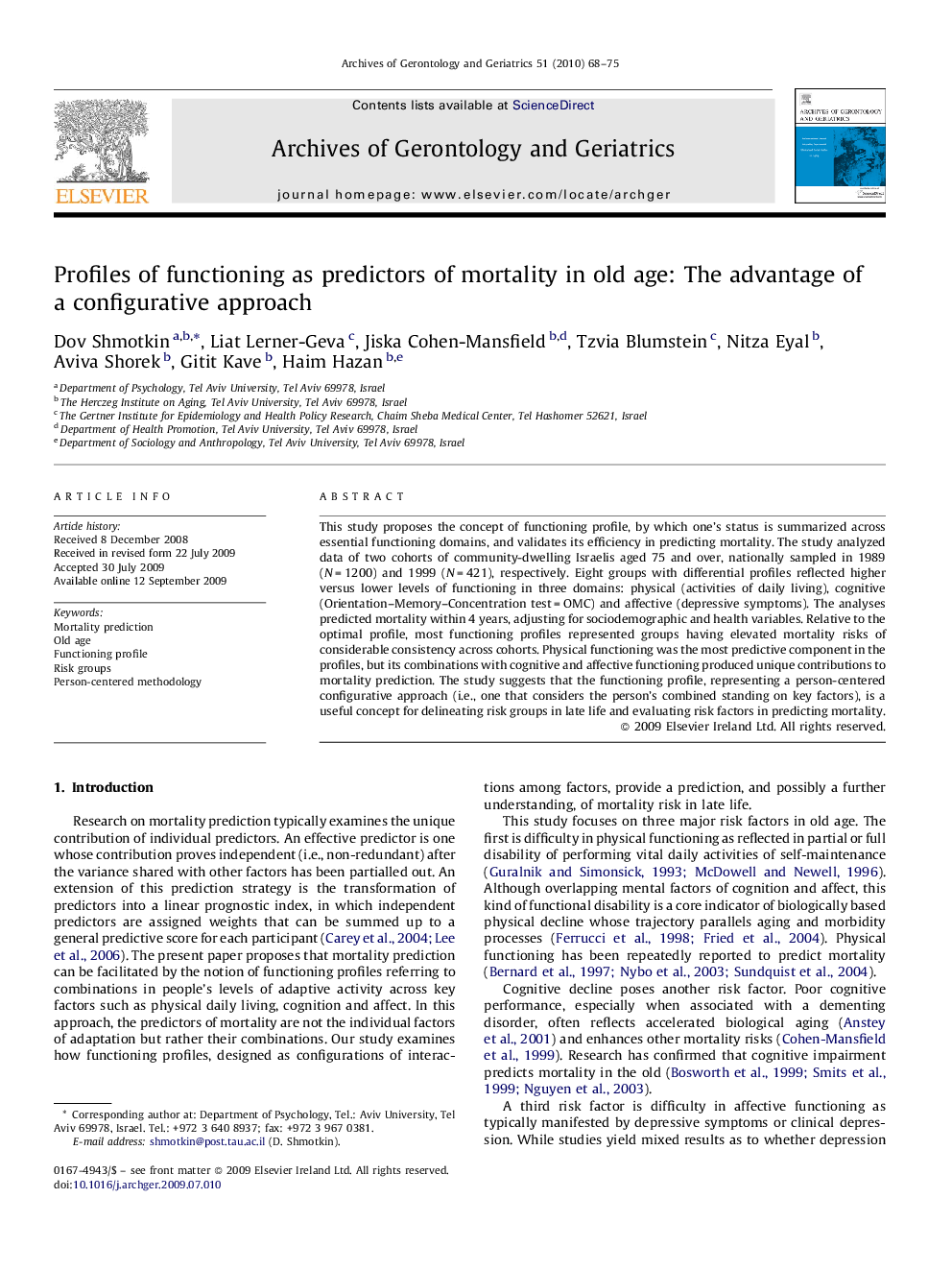| Article ID | Journal | Published Year | Pages | File Type |
|---|---|---|---|---|
| 1903328 | Archives of Gerontology and Geriatrics | 2010 | 8 Pages |
This study proposes the concept of functioning profile, by which one's status is summarized across essential functioning domains, and validates its efficiency in predicting mortality. The study analyzed data of two cohorts of community-dwelling Israelis aged 75 and over, nationally sampled in 1989 (N = 1200) and 1999 (N = 421), respectively. Eight groups with differential profiles reflected higher versus lower levels of functioning in three domains: physical (activities of daily living), cognitive (Orientation–Memory–Concentration test = OMC) and affective (depressive symptoms). The analyses predicted mortality within 4 years, adjusting for sociodemographic and health variables. Relative to the optimal profile, most functioning profiles represented groups having elevated mortality risks of considerable consistency across cohorts. Physical functioning was the most predictive component in the profiles, but its combinations with cognitive and affective functioning produced unique contributions to mortality prediction. The study suggests that the functioning profile, representing a person-centered configurative approach (i.e., one that considers the person's combined standing on key factors), is a useful concept for delineating risk groups in late life and evaluating risk factors in predicting mortality.
